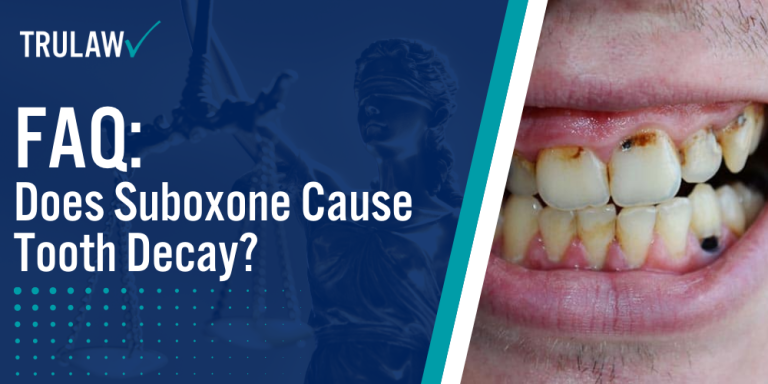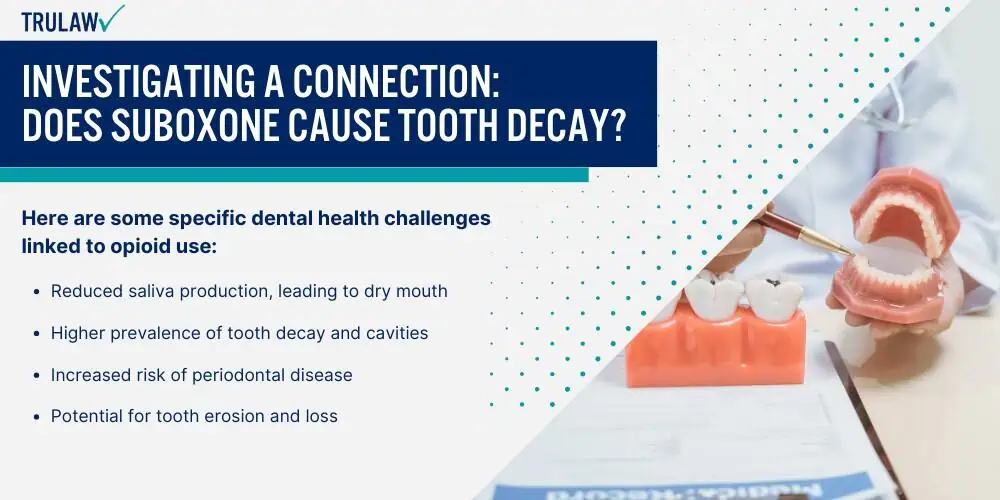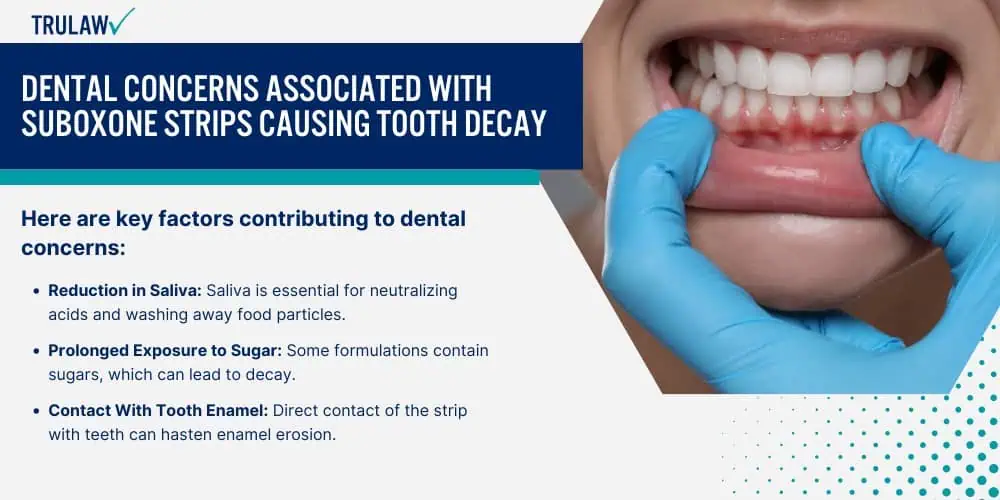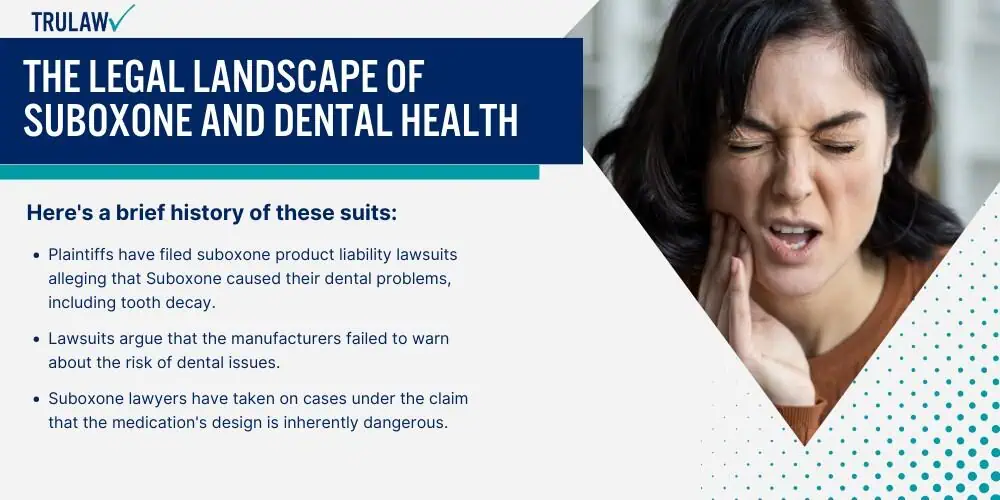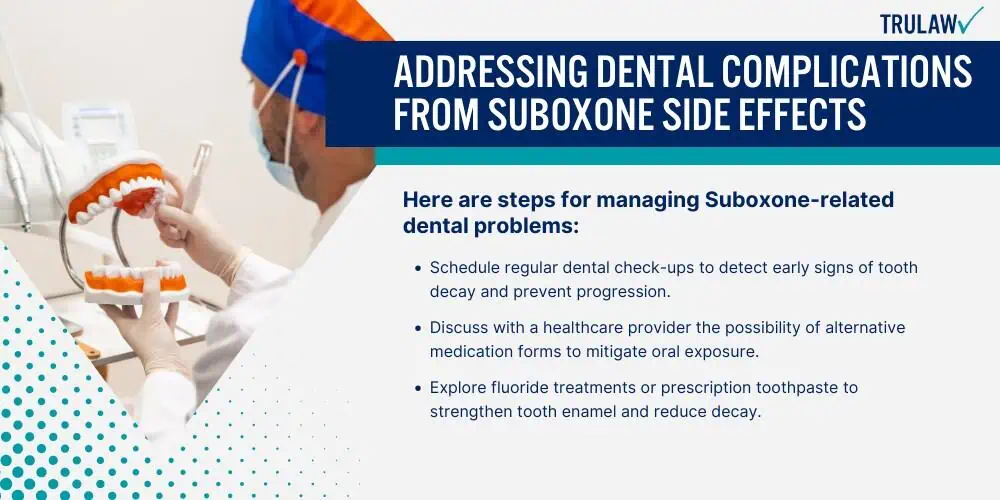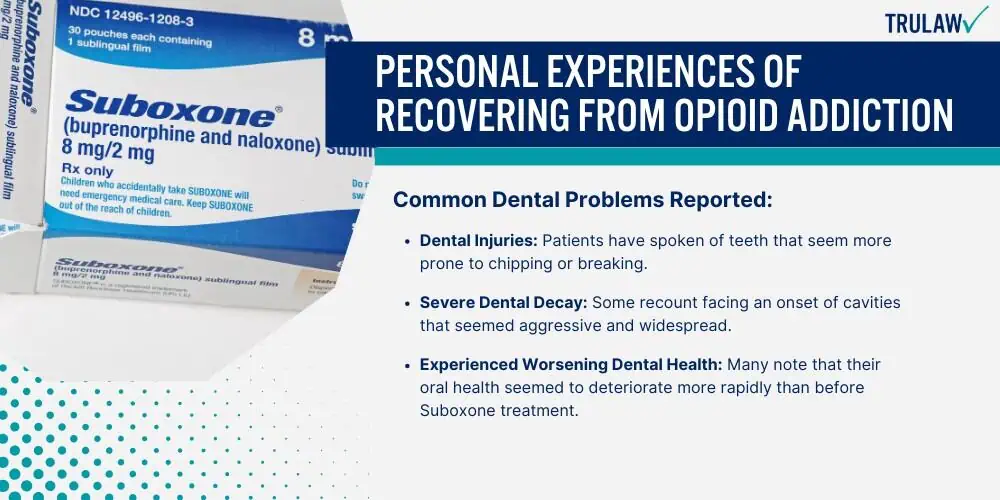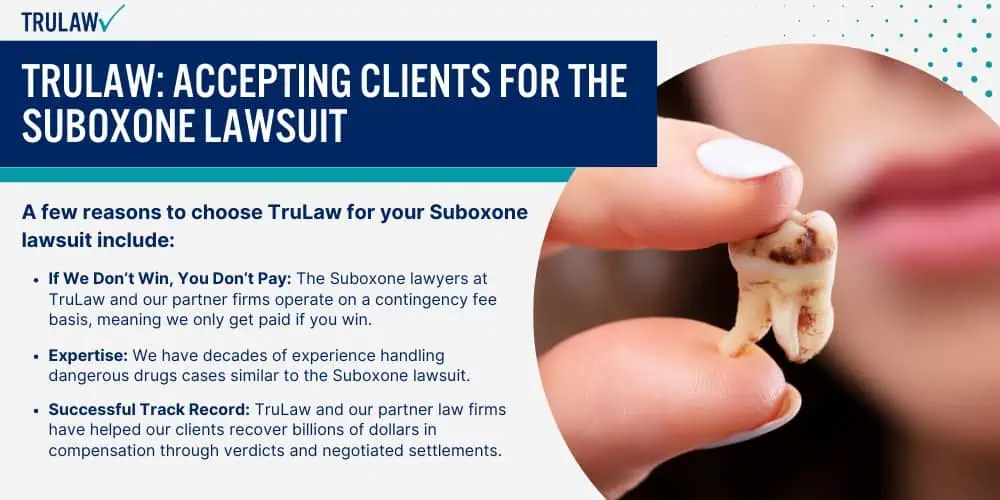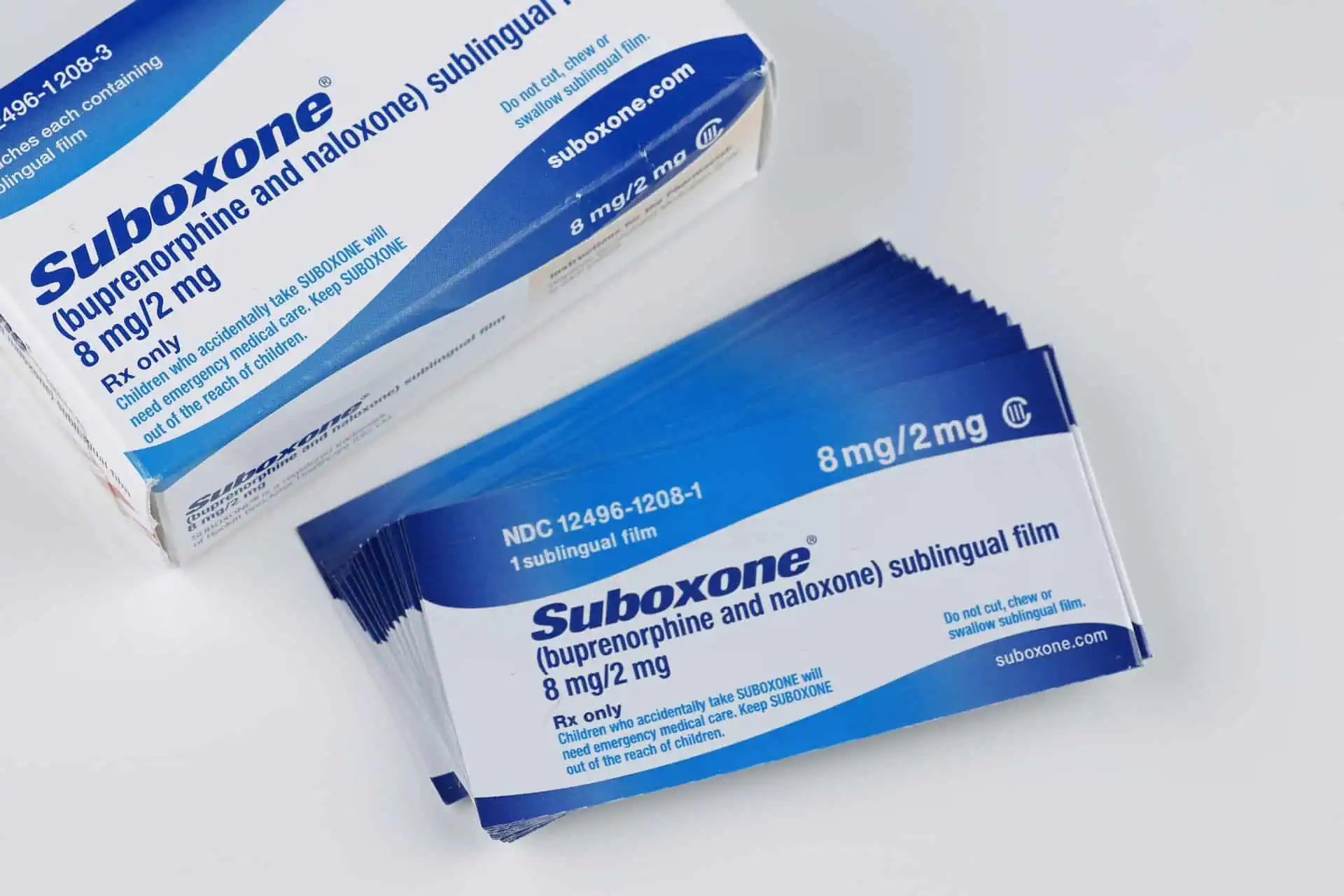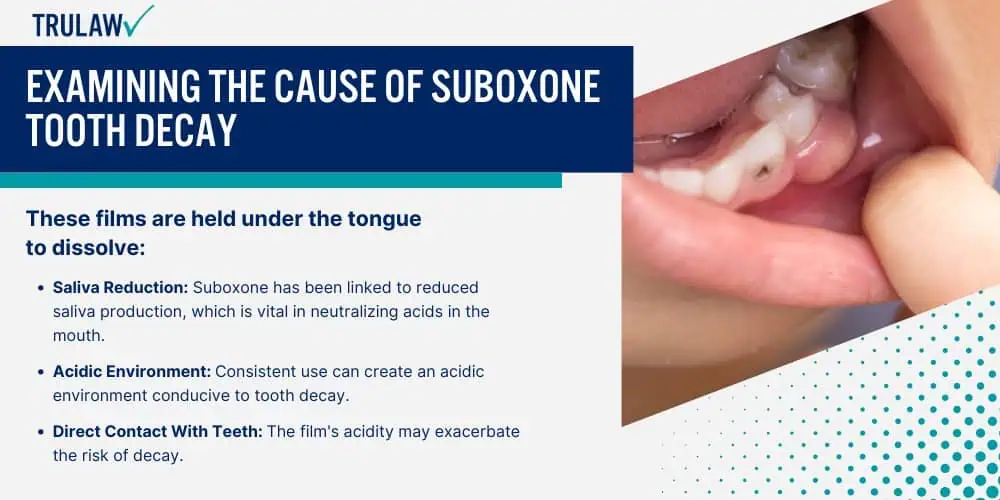
The occurrence of tooth decay among patients using Suboxone, particularly those prescribed sublingual films for opioid use disorder, warrants an investigation into the specific causes.
Acidic Nature of Suboxone Sublingual Films
Suboxone, a physician-prescribed suboxone film to treat opioid use disorder, often comes in the form of sublingual films.
These films are held under the tongue to dissolve:
- Saliva Reduction: Suboxone has been linked to reduced saliva production, which is vital in neutralizing acids in the mouth.
- Acidic Environment: Consistent use can create an acidic environment conducive to tooth decay.
- Direct Contact With Teeth: The film’s acidity may exacerbate the risk of decay.
- Drug Formulation: Certain inactive ingredients in Suboxone might contribute to the medication’s overall acidity.
The FDA warns about dental problems associated with buprenorphine medications that dissolve in the mouth, which includes Suboxone sublingual films.
Prescribing Sublingual Buprenorphine For Opioid Recovery
Physicians may prescribe sublingual buprenorphine for its efficacy in opioid recovery.
Yet, it is important to consider dental health:
- Medication Adherence: Patients must adhere to specific instructions to minimize the risk of dental issues.
- Preventive Measures: Oral hygiene and preventative dental care are critical for patients on Suboxone.
- Regular Dental Check-Ups: Routine visits to the dentist can help in the early detection and management of any oral health problems.
- Patient Education: It is imperative that healthcare providers inform patients of potential dental side effects.
Research into opioid use disorder treatments consistently reaffirms the importance of comprehensive care, which includes the management of medication side effects like those potentially caused by Suboxone.
